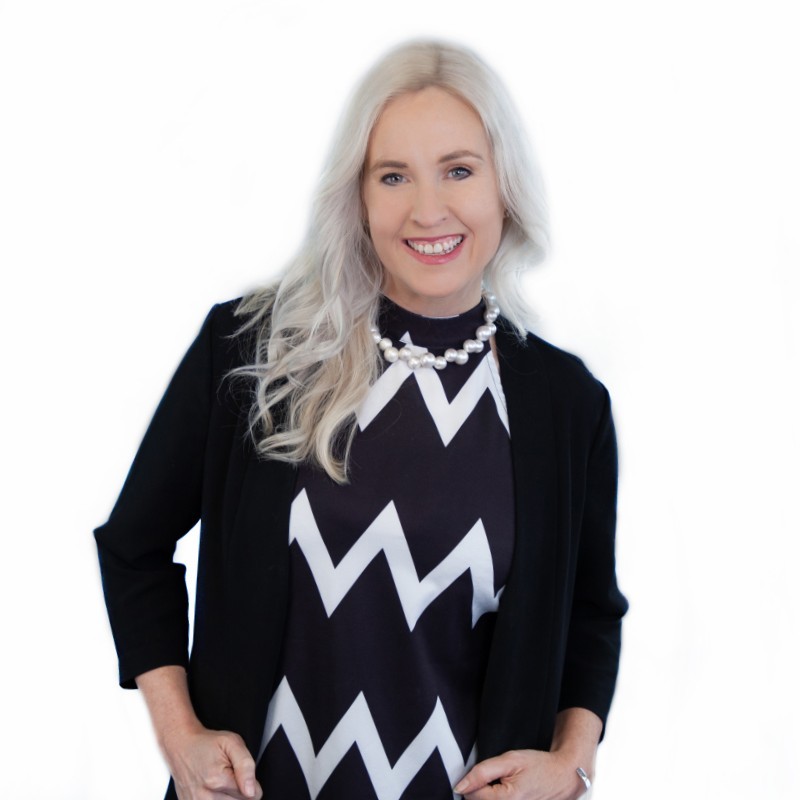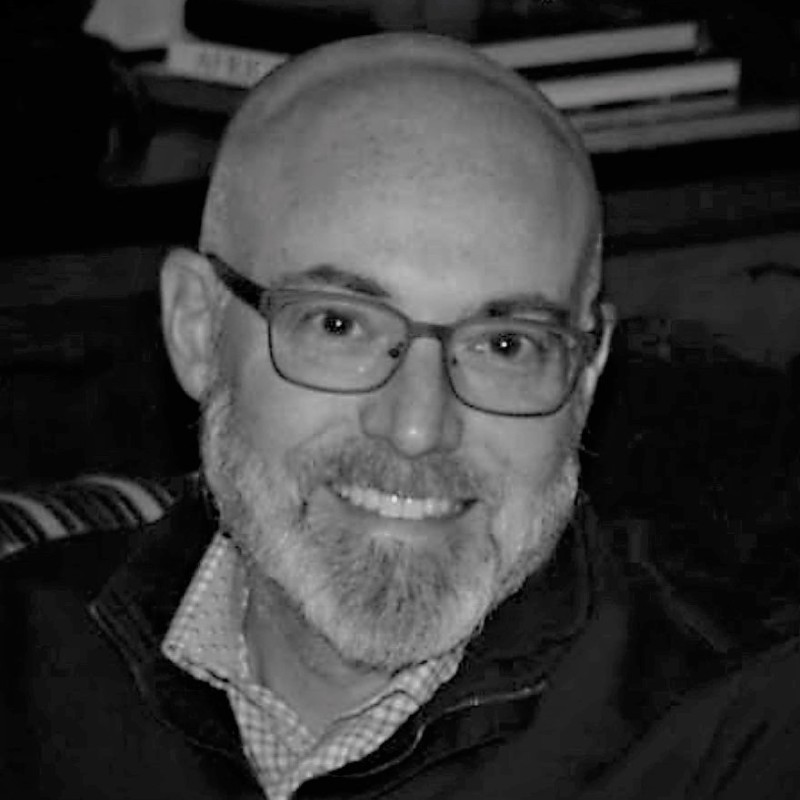Ever get that feeling, not that you hate your job, but that it’s not quite doing it for you? In this episode, Kate Volman walks us through what satisfaction should look like and where we are demanding too much from our jobs. Should our jobs just give us cash? Self-actualization? Something in the middle?

Today, our guest is Kate Volman. She’s the CEO at Floyd Consulting and this is Work Minus Dissatisfaction. Hi, Kate. How are you?
Hi, Neil. I am wonderful. Thank you so much for having me.
We’re very excited to have you. I want to start off with you just giving a little bit of an introduction to our audience to let them know who you are.
Sure. So, that you mentioned Floyd Consulting and that is a Matthew Kelly company. And he wrote The Dream Manager and most recently The Culture Solution which means that my team and I get to work with organizations to transform their culture and improve engagement and ultimately help them become the best version of themselves. And that’s the work that I’ve been doing really my whole career. I started in my role at the Boca Raton Chamber of Commerce. And I have also had my own company so I understand what it’s like to be in a leadership role and as a solopreneur. And like most of your listeners, I also do a lot of little side projects in creative work and things on the side.
Can I ask what the Floyd means in Floyd Consulting?
Yes. It’s so funny. We get asked that a lot. So, Floyd is actually Matthew’s father’s name and Mathew learned all about entrepreneurship from his father. But fun fact, it also actually stands for Finally Living Out Your Dreams.
That’s nice. Cool. So, we’re talking about dissatisfaction. So, you know, dissatisfaction and work seem to go hand in hand. Why are we so dissatisfied with our jobs?
So, I think that a lot of us are dissatisfied with our jobs because we… I mean, really, people are dissatisfied in their lives in general. I think that more and more people are just dissatisfied in the sense that they expect a lot, they’re trying to probably do too much, and you know, there’s a lot of complexities in our lives. We’re all trying to do a lot more things. And so, when we’re dissatisfied in our personal lives, then of course, we’re going to show up to the workplace that same way. You know, I talk to leaders all the time and I say it’s kind of interesting that people are so… their lives are a mess and things are falling apart and there’s a lot of issues and challenges they’re dealing with when they go home, yet, we expect them to show up at the office and lead productive meetings and get things done and have this completely different experience at the office and that’s really just not the case. And so, we have to work at being satisfied both personally and professionally.
Yeah. I mean, sometimes we hear this phrase, you know, bring your whole self to work, and sometimes I don’t know if we want the whole self to come to work.
Exactly.
You always hear about social media and the jealousy factor and you look at other people’s lives and they seem to be so perfect. Does the same thing happen at jobs? Like, do we look at other people and think, “Oh, their job is so great. They get all these perks, these benefits. They’re having so much fun.” Do we have that same feeling in our jobs?
Oh, yeah. I think so. And you know, social media, it goes hand in hand because really people… for most people, their lives are so connected to their work life. So, they’re posting the big highlight reels of themselves and who they are and the work they do and it seems great, you know? Like, we look at people… think about anybody that you respect and admire, the work that they do, whether it’s a podcaster, a writer, a CEO or whomever, and we look and we think, “Oh, man. They have the best job. They do this work and it’s so easy for them.”
Well, that’s not the case. And you and I know, you’re a podcaster so you know the time, energy, and effort that it takes to put something like this together. So, the hard work is what’s not talked about. So, it takes a long time for people to get where they are in the roles that they have. And so, it’s easy for us to say, “Must be nice. It’s easy for them. They have the money. They have the resources. They have the things that I don’t have. Like, I can’t get there,” instead of focusing on the things that we can do in work, the things that we can focus on to make our experience at the office and the work that we do better.
I think it’s always amazing whenever you meet one of those people you idolize a little bit in real life and get to see them and get to interact with them at a conference or something like that and you realize they’re just a normal person just like everyone else and they have kind of the same insecurities that are there. So, it’s really almost refreshing to see somebody who’s struggling with the same things that everyone else does.
Oh, my gosh. Absolutely. And it also I think in this kind of social media world, some of those people, they’re really good at reminding us of the challenge and of the struggle. And one of my favorite books is Steven Pressfield’s “The War of Art”. In any kind of creative work or anything that we do, we have to remind ourselves that there’s so much resistance to do the things that we really want to and to go after the stuff that we want in life because we have this resistance, we have this fear, and we have to get over that every day.
I absolutely love that book. It’s a great tool for anyone in any job, but especially if you’re in some kind of creative function, to think about the challenges you face. It’s just a great reminder for that.
Yeah. And you know, it’s funny when it comes to creativity because… everyone is creative in their own unique way and we’re satisfied when we feel productive, right? Like, when we come into the office and you have a highly productive day, you feel like you really accomplished something, you feel like you did good work, you feel like you put forth something that’s helping that bigger mission, that bigger vision. And everyone is creative. You know, the woman on my team that does all the accounting and the books and all that stuff, she always kind of is in awe of some of our coaches and our trainers because the coaches and trainers get to do the “fun” work, right? They’re out there on stage. They’re going into organizations and working with teams.
And I have to remind her she’s in this role and she loves what she does. She comes into my office and she shows me these spreadsheets. She gets so excited about showing me these beautiful spreadsheets and I have to remind her that that’s creativity in her own way. That’s her genius. That’s what she loves and she contributes the same way that these coaches and trainers do. Like, we need that piece of the puzzle in order to do our best work, in order for the trainers to be able to go out and do that work. And so, you know, it’s really important as leaders and managers to remind our team of their value, of their genius, and really figure out what that is and let them do that really, really well because when that happens, you’re going to get the most out of your people.
I think you hit on something when you talked about the relationship between satisfaction and productivity. I noticed in my own life I’m the most dissatisfied with my job when I feel like I’m not getting things done or I’m not getting important things done. Do you think that’s at the core of it or is that just a symptom of it?
I mean, for sure. When we look at organizations and the organizations that do the best, they have clearly defined their mission, their vision. People know what they’re there for, right? Like, if you look at the list of best places to work, those are organizations that have a really clear vision of what they’re doing. And so, everyone that’s on board, they know what they’re striving for. And when we know that and we come into the office with clear expectations on this is my role, this is what I’m expected to do, these are the expectations and every day I get to chip away at my piece of this bigger vision, then we feel satisfied. We feel like we’ve had this productive day. The days that we go into the office and it’s just kinda we feel like we’ve been pushing papers or just being on the phone and haven’t got anything accomplished, that’s when we’re feeling dissatisfied.
And that’s the same goes for life in general, you know? I mean, when people come home from the office, you know, it comes down to what do you want to accomplish in your life? What are the dreams that you have for your life? And so often, people forget about their dreams. They forget about the things that they really want to do. And so, your work, while hopefully you enjoy your work and you enjoy going into the office, really, you’re not going into the office because you love it, right? Like, you don’t love going to… If you love your job, great, and if you love your boss, great, but you’re not going into the office because you love your boss and you love your work. Like, really, you have dreams for your own life, whatever that is, places you want to go, things you want to do and see and experience. And so, when we focus on the dreams that we have in our lives and we focus on what can we do every single day to get one step closer to fulfilling that dream, that’s going to help you become satisfied, too. That’s going to help you in work when you have those more challenging days because, hey, there’s a bigger vision for why you’re doing this.
So, this makes me want to ask, Kate, do you feel like we’re expecting too much out of our jobs? I mean, some people say, you know, you’re going to spend so much of your life there, you may as well love it, it should be a passion, it should be something that you love doing. And so, employers are trying to meet these expectations, but is it really just a matter of some jobs you just got to do and you have to recognize that you’re going to be, to some level, dissatisfied with it, but see it as a tool for something else? Or do we lean more towards this employee entitlement thing where, you know, people feel like they should be so self actualized when they’re in the office all the time?
Oh, my gosh. Yes. Entitlement. I think entitlement is a very good topic. I think many people feel entitled at work and that really kills culture, which is a whole other topic. But when it comes to work, yes, for people that get to do what they love and love what they do every day, those creative people who get to write every day and that’s what they want to do and they’re successful at it. You know, you look at someone like Neil Gaiman, I mean, amazing author and that’s what he gets to do. That’s his career and that’s amazing that he gets to do his creative work that fulfills him in that way and he also gets paid to do that. Wonderful. But for some people, or for lots of people, you may have a job that it’s more of a job. You don’t hate it. You don’t love it. But it’s not your passion. But you know what? It affords you the opportunity to earn an income, to do something… hopefully you’re doing something that you somewhat like and appreciate and the people that you work with you enjoy. And then you can go home and do something else. You can go home and pursue another passion.
I mean, especially in the world today. I have a good friend of mine and he has a great job. Does he love it? He doesn’t love it but he has a pretty 9 to 5 type job and then he goes home and he has a podcast and he also works on these other side creative projects. And would he love to be able to do that full-time? Sure. But he also knows, you know, there’s a lot of benefit to having my job and to be able to support myself that way and not have to worry about this creative work that I love doing so much, how am I going to figure out how to monetize that? And so many people talk about that and they’re like, “I want to write and I want to podcast and I want to blog and I want a YouTube channel.” Great. But you don’t start thinking I’m going to have a six figure salary doing that right off the bat. And that doesn’t mean that you can’t come home and start doing some videos or start booking some guests and starting a podcast and seeing where it goes.
And that’s the beauty of the creative work that we’re able to do and it’s so easy to do anything when you get home from the office. And it’s funny because I had a woman that said to me, “You know, I’m just so tired,” right? You get that all the time. Like, “I just worked a full day, a long full day, and when I get home the last thing I want to do is do videos or write. And my question is, “Well then, how much do you really love that thing?” Because if it’s something that you really, truly love, if you love writing, if you love creating something, all you have to do is start doing it, right? Like, if you sat down and said, “Hey, I’m going to, for 10 minutes after I get back from the office, I’m going to write.” Well, that 10 minutes will most likely turn into an hour or more when you start getting into the work.
Yeah. Absolutely. When you put it that way, it makes a lot of sense. And I like the point you made, too, because a lot of times, it’s a lot of pressure when you try to monetize these passions and to get with it, and it’s very freeing to say, you know, I just like to do this. I don’t care if I get paid for it. I want to make decisions based on if I’m going to get paid for it or not. I just want to do it and have something else pay for my life. That’s a great insight, too.
Exactly. And that’s so fulfilling, too. Like that’s the fun part. I almost feel like the second that you start getting paid to do something, it shifts, the whole energy shifts, not bad or good, just that’s just the facts, like when you start to turn that into some type of a business. And so, you have to just make that decision if that’s what you want or not and both things are wonderful but I think so often just kinda what you talked about before with social media, it’s so easy for us to look at someone’s creative work and they do very well online and they earn a wonderful living doing some of this creative stuff. But it’s hard and a lot of people don’t understand the work that goes into all of this stuff. People make it look easy. It’s like when you watch somebody do… like, when you’re watching an athlete of any kind or somebody that’s doing the thing that they do best, they make it look really easy, and it’s not. They put a lot of time, energy, and effort into that.
Well, let me shift the discussion a bit and talk about people who are leading teams, managers that are out there. So, if they’re dealing with team members who are dissatisfied. Let’s talk first about people who you’re not really sure. I mean, sometimes it’s very obvious somebody’s voicing their dissatisfaction with their job, but how do you tell if somebody is dissatisfied but they’re not saying anything about it?
Studies show that about 70% of the workforce is disengaged.
So, we’re just going to start assuming most people are.
That’s a lot of people. So, you know, I think if leaders are really paying attention, they know who on their team, right? Like, there’s the rockstars on your team that you know they’re getting things done, you don’t have to worry about them, and you want your whole team to be that way. So, when you’re coming into the office, it’s clear. Like, if someone… there are people that will show up to the office and what do they do? They always want to talk about what we can’t do, the limitations, why these are all the challenges, and they never really seem to bring solutions.
But then you have those highly engaged people, their energy is high, they come to meetings, they’re taking notes, they’re asking great questions. I mean, if your team members are asking great questions, you know they’re engaged, they want to know not only how it affects them but what that means for the organization. They’re asking good questions and they’re also coming with ideas. They’re not coming with only focusing on the challenges. And that’s when you know you have a really good team. And we talk about it at Floyd all the time which creating a dynamic culture where people are highly engaged, it means you have a coaching culture.
So, leaders, managers, which I call managers leaders. I think we should just get rid of the term manager. If you’re a manager, you’re leading a team, you’re leading people, and it’s your responsibility to coach those people to be their best. And so, as a leader, you should have a really good understanding of where your people are on the engagement level because if they’re very disengaged, why are they there? How can you help them either become more engaged or help them figure out, “Hey, this isn’t where I’m supposed to be,” and maybe they need to leave. And that’s totally okay because then you can find the right person.
So, when you have a really incredible team, you’re going to have a great culture, everyone’s going to start working together, and if everyone’s working together, they’re going to become more engaged because if you keep on hiring engaged employees, then the people that are going to be disengaged, they’re not going to even fit in, right? Like, they’re going to be like, “Oh, this isn’t where I need to be. These people are making things happen. They’re doing great work.” And so, they either step up to the plate or they leave.
So, in the work that you guys do at Floyd, when you first start engaging with the company, you first start interacting with them, what are those early signals you’re looking for to tell whether or not people are engaged, what level of work, how much work there is to do at a certain location?
So, it’s pretty clear when we talk to someone initially because we’re usually talking to the CEO or manager…
You said not manager, no?
I know. Neil, you just called me out. I love it. Yeah. We’re talking to someone on the leadership team, right? So, they already know. Most people come to us because they know that they need help with their culture and their culture, the culture is all about the team, it’s all about the people. So, most of the time, people are… they’re overworked. I’m still fascinated by how many organizations really don’t… they’re people don’t quite know what is the mission. Like, what is the mission of the organization and what is my role? Like, what is my role really?
And so, one of the things that we talk to organizations about is does everyone on their team not only know the mission of the organization but are they, A, keeping mission front and center, and B, are they really clear on the expectation that you have of them in their role? So, I think that’s another thing that causes dissatisfaction is we don’t know what we’re being evaluated on every year. Team members are coming into the office, they think they’re doing a great job and they’re kind of moving along, and then all of a sudden, they get fired or something happens and they’re not sure why and they get really stressed out. So, when we’re stressed out as someone on a team, it’s usually because we don’t know where we stand and that’s a horrible feeling, right? If you don’t know where you stand in the workplace or what your leader is thinking of you, that’s a problem.
And so, we always work on creating scorecards for people. you know, everybody that comes into an organization, you should have a role description. Not a job description because people don’t want jobs, they want careers, they want something more, so you have a role description and then you have a scorecard. So, really, clear, three to five things that they are being evaluated on and they know, they always know at all times this is what’s expected of me. And so, when they’re talking to their leader, it’s very clear, they’re not going on different paths and doing all these different things in the organization. They’re focused on the most important things and everyone’s on the same page.
Well, Kate, close us out here telling us what you feel like satisfied teams look like.
So, people who are satisfied at their jobs, they have tons of great energy. They come into the office, they’re excited to be there and also they live passionate lives. They have dreams for their lives, they are doing things in their personal life, and they come into the office with that same type of energy. They want to get things done, they have a dream for themselves and their role for the organization, and you have a great culture. You can tell when you walk into an office when there’s a great culture. You know, people are happy, they’re talking about your organization outside of the organization and people that are part of that dynamic culture, they love it, they thrive on it, and like I said, it’s a coaching culture.
So, if you’re in any type of a leadership role, the best advice I can give you is to become the best coach that you can be, ask really great questions of your employees, and yeah, become a great coach. If you coach your people, they will coach their people and it’ll completely shift the dynamic in your whole organization and absolutely people will become more satisfied, not only there, but they’ll bring it home to their personal lives. And that’s really what it’s about. It’s not about work life balance. It’s about personal and professional satisfaction.
Nice. Love it. All right, Kate, where can people go to stay in touch with you?
Check out our website at floydconsulting.com, and of course, you know, you can find me on social media as you can everyone, just Kate Volman.
All right. Fantastic. Kate, thanks for being on the show. Thanks for sharing your insights and we look forward to staying in touch.
Awesome. Thank you, Neil. This was fun.
Kate Volman is the CEO of Floyd Consulting. She and her team are dedicated to helping individuals and organizations become the-best-version-of-themselves by providing training, coaching, and consulting services, including Floyd’s cornerstone Dream Manager program based on Matthew Kelly’s bestselling book. With over fifteen years of consulting experience with businesses, executives, and having been a business owner herself, she fully understands the professional challenges her clients face. She is committed to helping them grow. Kate has had the opportunity to work with both large and small businesses, and brands such as GoDaddy, Entrepreneur.com, and StartUpNation.com. She is also a sought after speaker locally and nationally.
Her love of entrepreneurship began while working at the Greater Boca Raton Chamber of Commerce. During her eight-year tenure, she created a variety of programs, workshops, and initiatives including Successful Women in Business, PULSE (Young Professionals program), Smart Talk for Women, and From How to Wow. These programs helped business owners build effective relationships and execute results-driven marketing strategies. She also worked as the Marketing Director for the City of West Palm Beach Community Redevelopment Agency, expanding their online presence and community engagement. As a natural progression, she then began her own marketing consulting agency. Through her coaching and training programs, she has helped a tremendous amount of organizations leverage video and social media to increase their online exposure and build better relationships with their customers, resulting in increased revenue and profitability. She created an eight-week Marketing Mastermind program and Now Go Live, an online course for business owners.
Kate co-created and co-hosts Delray Morning Live, a weekly live morning show dedicated to highlighting her local community. She also co-created and co-hosts Trajectory, a podcast for solopreneurs and business professionals looking for practical advice and ideas to help advance their careers.












